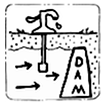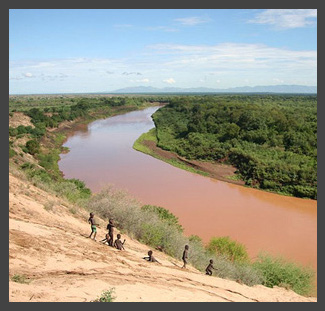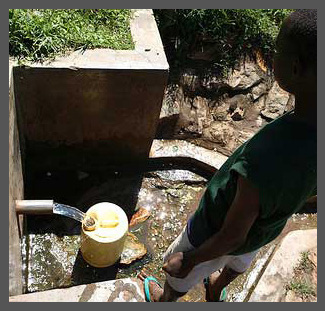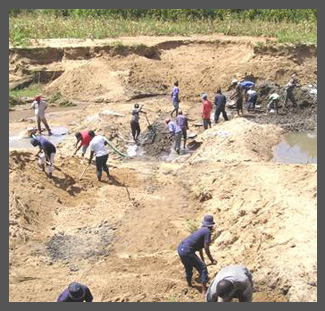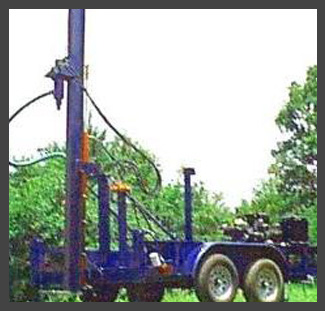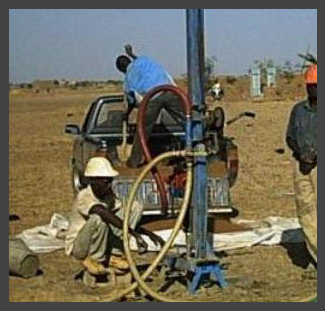Difference between revisions of "Groundwater access"
| Line 1: | Line 1: | ||
| − | + | Rainwater (if given the chance to infiltrate) eventually becomes groundwater. Groundwater is advantageous as it is always around (in spite of the timing of the rainy season), has a high storage capacity with good water quality (usually), is resilient to inter-annual climate variability and has a low cost relative to alternative sources. | |
However, the height of the water table depends on a lot of factors: type of soils or rock beneath the surface, nearby reservoirs or rivers, and frequency or overall total abstraction of water from populations nearby. Also consider the quality of the groundwater. Is it too salty or near an agricultural runoff or sewage water area? Locate the infiltration or abstraction points where the water is least likely to be affected by pollutants. | However, the height of the water table depends on a lot of factors: type of soils or rock beneath the surface, nearby reservoirs or rivers, and frequency or overall total abstraction of water from populations nearby. Also consider the quality of the groundwater. Is it too salty or near an agricultural runoff or sewage water area? Locate the infiltration or abstraction points where the water is least likely to be affected by pollutants. | ||
Revision as of 02:03, 5 March 2013
Rainwater (if given the chance to infiltrate) eventually becomes groundwater. Groundwater is advantageous as it is always around (in spite of the timing of the rainy season), has a high storage capacity with good water quality (usually), is resilient to inter-annual climate variability and has a low cost relative to alternative sources.
However, the height of the water table depends on a lot of factors: type of soils or rock beneath the surface, nearby reservoirs or rivers, and frequency or overall total abstraction of water from populations nearby. Also consider the quality of the groundwater. Is it too salty or near an agricultural runoff or sewage water area? Locate the infiltration or abstraction points where the water is least likely to be affected by pollutants.
Climate change considerations
Climate change affects the precipitation and temperature dynamics on a global scale, and hence will impact upon the supply and demand for water of local communities. Enhancing water storage capacity, both above and below ground, is widely accepted as a coping strategy against hydrological shocks such as floods and droughts.
Groundwater links
- VIDEO: How to Professionalize the Manual Drilling Sector in Africa. Produced by UNICEF.
- Groundwater resilience to climate change in Africa. Keyworth, Nottingham. British Geological Survey 2011.
- Global Overview of Saline Groundwater Occurrence and Genesis. IGRAC, 2009.
- Sustainable Development of Groundwater Resources in Southern and Eastern Africa. International Atomic Energy Agency.
- Siting of Drilled Water Wells - A Guide for Project Managers RWSN Field Note 2010-5 (Cost Effective Boreholes Series). Carter, R., Chilton, J., Danert, K. et al. RWSN. St Gallen, Switzerland 2010.
Acknowledgements
- Management of Ground Water in Africa Including Transboundary Aquifers: Implications for Food Security, Livelihood and Climate Change Adaptation. United Nations Economic Commission for Africa, African Climate Policy Centre, 2011.
